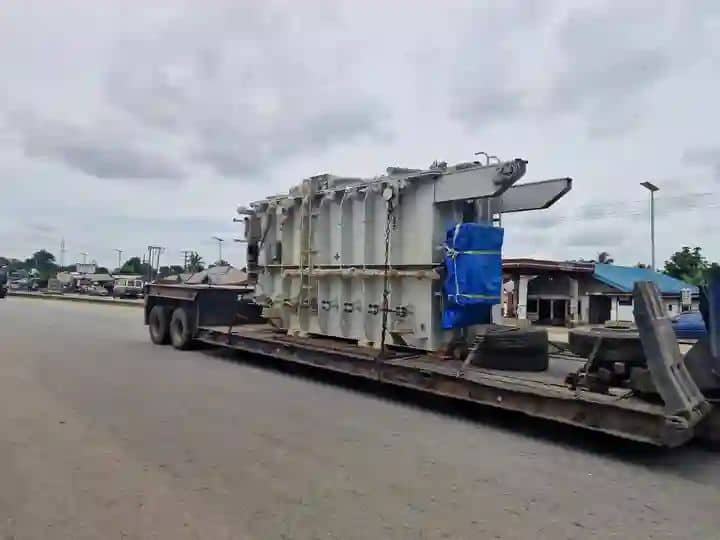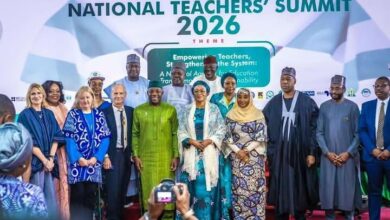Constitution Review: Senate Begins Zonal Public Hearing on in Lagos

….Prioritize Electoral Reforms, State Police, Local Government Creation, Fiscal Restructuring Top Agenda
By Fatima Saka
Lagos, Nigeria – July 3, 2025 —
The Nigerian Senate has commenced a two-day zonal public hearing in Lagos as part of a nationwide effort to review the 1999 Constitution, with proposals for the establishment of state police, creation of 18 new local governments, far-reaching electoral reforms, and fiscal restructuring topping the agenda.
The Lagos hearing, which begins Friday at Water Crest Hotel, Ikeja, represents the South-West zone’s contribution to the national constitutional review process. Similar hearings are scheduled across all geopolitical zones, except the North-West, where the event was postponed due to the passing of prominent Kano businessman and philanthropist, Alhaji Aminu Alhassan Dantata.
Senate Leader and Chairman of the South-West Constitution Review Committee, Senator Opeyemi Bamidele, said the public hearing provides an inclusive platform for Nigerians to shape reforms that address the nation’s governance, security, and socio-economic systems.
The Senate inaugurated the 45-member Constitution Review Committee on February 14, 2024, with Deputy Senate President, Senator Barau Jibrin serving as Chairman and Senator Bamidele as Vice Chairman.
Key Proposals Under Consideration:
State Police and Security Agencies: A bill seeks to amend the constitution to empower states to establish their own police or security outfits. Another bill proposes the creation of State Security Councils to advise governors on security matters.
Labour and Wage Decentralization: One proposal aims to move labour, industrial relations, and minimum wage from the Exclusive Legislative List to the Concurrent List, allowing both federal and state governments to legislate on the subjects.
Control of Waterways: A bill recommends transferring interstate waterways regulation from exclusive federal control to shared federal-state oversight, opening avenues for states to participate in shipping and navigation policies.
Electoral Reforms: Proposed changes include provisions for independent candidacy, diaspora voting, and a requirement for political parties to resolve pre-election disputes internally, without immediate recourse to the courts.
Local Representation: A proposal seeks to guarantee that each local government in a state has a dedicated representative in the State House of Assembly to promote fairness and inclusive governance.
Fiscal Responsibility: Reforms seek to limit the period a President or Governor can authorize spending from the Consolidated Revenue Fund without an Appropriation Act from six months to three. Another seeks a revised derivation formula that includes all state-generated revenues.
State and Local Government Creation:
According to Bamidele, the committee has received 32 proposals for new states and 18 for new local governments, distributed as follows:
States: 6 from the North-West, 8 from North-Central, 5 from South-East, 6 from North-East, 6 from South-South, and 4 from South-West.
Local Governments: 7 from North-West, 5 from North-Central, 1 from North-East, 3 from South-South, 1 from South-East, and 1 from South-West.
READ ALSO:Bible Society of Nigeria Supports Makoko School children, Families with Learning Tools, Food Items
IPOB Declares Zero Tolerance for Violence and Criminality in Biafra Struggle
Bamidele emphasized that all proposals are subject to public scrutiny and debate to ensure that the final amendments reflect the collective will of Nigerians.
The public hearing in Lagos will run from Friday to Saturday, with stakeholders from civil society, traditional institutions, academia, and professional bodies expected to make submissions.
The Constitution Review Committee has pledged to transparently consider all input as it prepares to deliver recommendations that could significantly alter Nigeria’s political, legal, and socio-economic landscape.





